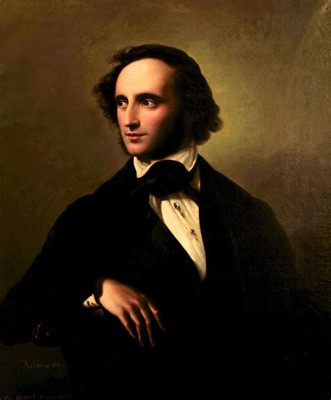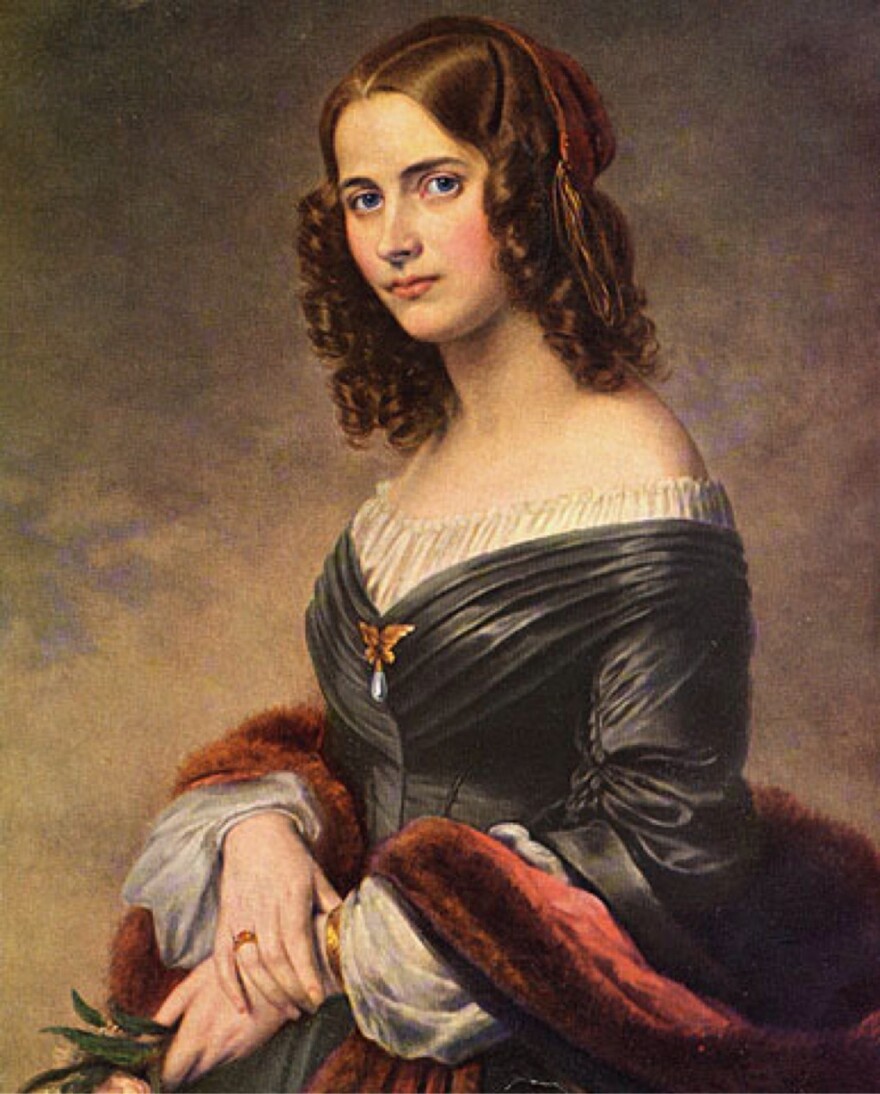

Felix Mendelssohn was one of the early masters of the Romantic Era, composing and performing with one foot still in the Classical Period. Born into a wealthy Jewish family, he and his sister Fanny Mendelssohn had extensive musical training as children in violin, piano, and organ, and both became accomplished composers.
The family became Christians when Mendelssohn was 7, but he remained proud of his Jewish heritage. For example, when Mendelssohn conducted the second-ever performance of J. S. Bach's Saint Matthew Passion in 1829 at the age of 20, leading to a great revival of Bach, he remarked, "It was a Jew who restored this great Christian work to the people." In this and other ways keenly aware of music history, he was one of the first musicians as a conductor to program both historical and modern works in his concerts.

Mendelssohn went on a performing concert tour in the 1830s, spending a lot of time in Great Britain, where his organized and sensible style became very popular during the Victorian Era. Particularly popular were his Lieder ohne Wörter, or "Songs without Words," short works for solo piano. When compared to many other composers of the Romantic Period, Mendelssohn's music is highly traditional and conservative. This, and the widespread anti-Semitism throughout Europe over the next century, caused Mendelssohn's popularity to fade until he had his own revival during the 20th century.
His sister passed away in 1847 at the age of 41, and Mendelssohn suffered a stroke and passed away the following year at the age of 38.
A Midsummer Night's Dream (1826)
Lieder ohne Wörter (1832)
Hebrides Overture (1840)
Violin Concerto in E Minor (1844)
Gondellied (1837)
Nocturne in G Minor (1838)
Nachtwanderer (1843)